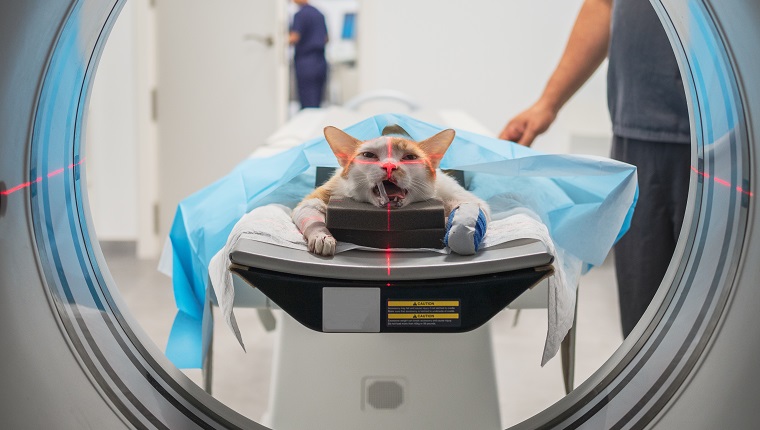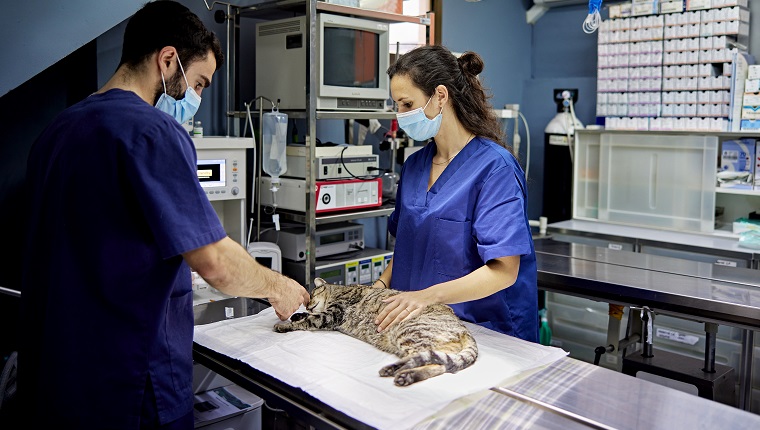Astrocytoma in cats is a specific type of brain tumor that affects cells in the body called glial cells. These glial cells are located around the nerve cells and help to support them.
Fortunately, this is a rare condition; although, it can also prove to be life threatening, so it’s important to seek medical help if you notice your cat displaying any symptoms.
If you see signs that your kitty might be developing a brain tumor, then you must consult your veterinarian for a proper diagnosis and course of treatment. Here’s what you should know about the symptoms, causes, and treatments of astrocytoma in cats.
Symptoms Of Astrocytoma In Cats
Astrocytoma in cats can result in a range of symptoms depending on the precise location of the brain tumor. Some of the most frequent symptoms include:
- Acting clumsy
- Paralysis
- Seizures
- Acting disoriented
Causes Of Astrocytoma In Cats

Astrocytoma in cats is classified as an idiopathic medical condition, meaning the exact cause is currently unknown.
In some cases, factors such as trauma, genetics, and exposure to radiation and pesticides have been suggested as contributory causes of the condition.
Veterinary Treatments
If you suspect that your cat is developing astrocytoma, then your veterinarian will ask a detailed series of questions about their symptoms and their medical history. This will generally include questions about any recent events or circumstances that might possibly have contributed to the development of the brain tumor.
The vet will also carry out a full physical examination of your kitty, including blood and urine tests. Vets often suggest the use of a CT scan or an MRI as a way to confirm a diagnosis. Sometimes, they can analyze a sample of cerebrospinal fluid to help identify a case.
When providing treatment, vets most commonly use chemotherapy and surgery as ways of dealing with the tumor.
As your cat receives treatment, it is important that you schedule regular vet visits so that your vet can closely monitor the status of your cat’s condition. If your vet prescribes medication, then it is vital that you stick to the recommended dosage and frequency instructions and complete the full course of medicine.
Has your cat developed astrocytoma? What treatment has your vet suggested? Tell us all about it in the comments below.




